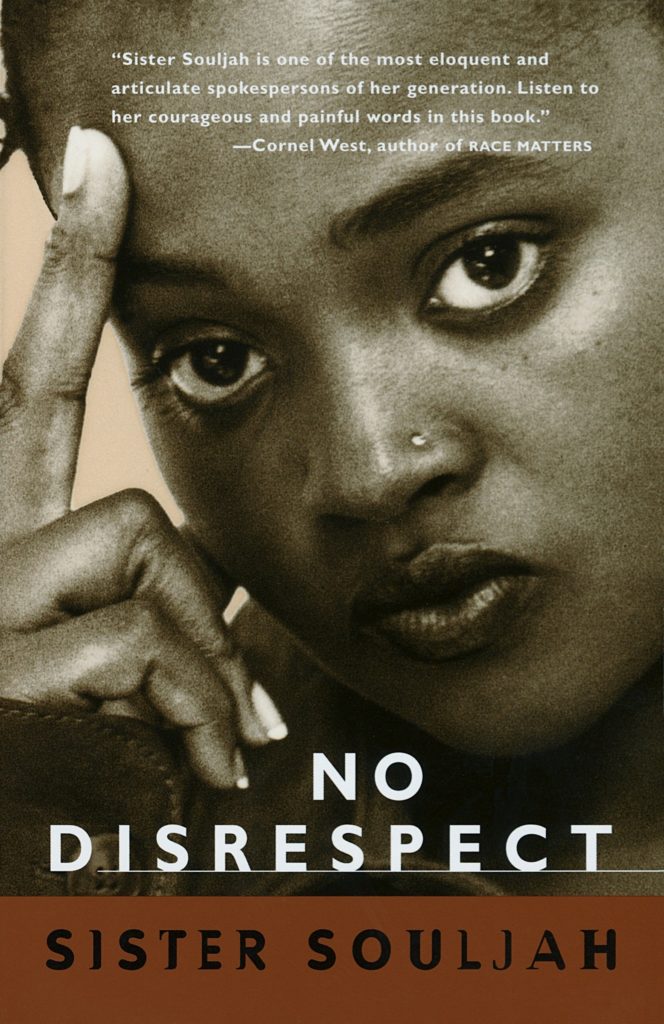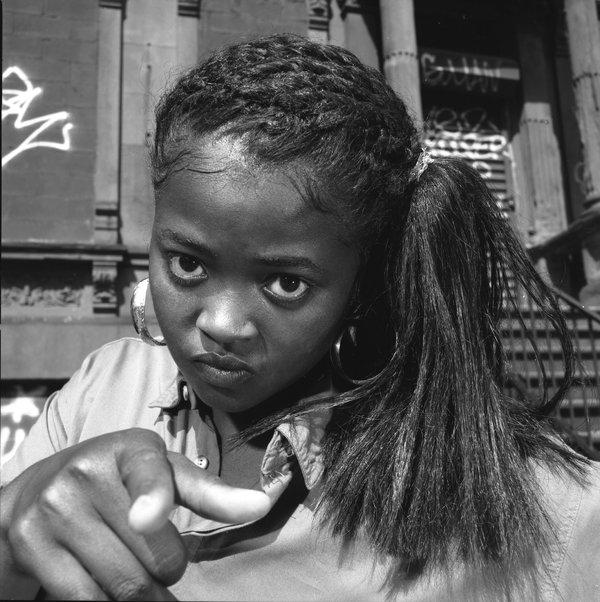Origins of Sister Souljah
- Sister Souljah was born with the name, Lisa Williamson on January 28th, 1964 in The Bronx, New York. In her early years, Sister Souljah lived in inner-city New York. These experiences would contribute to her music and activism in later years. As a teenager, she lived in the suburbs of Englewood, New Jersey, where she continued to develop her ideas of race in her community. In all of the spaces she grew up in, Sister Souljah always had a very strong black presence surrounding her.

- Because of her experiences and her strong-willed nature, at an early age Sister Souljah spoke out against the injustices surrounding her reality. Specifically, when Sister Souljah was in high school, she very often vocalized her dissatisfaction with the content of education within the American school systems.
- In speaking out, she explained that little to no accurate information about African-American history is taught in schools and emphasizes the need and importance for black history to be taught in schools.
- Eventually, Sister Souljah would use music to translate her message to the mainstream media and across the world.
The Height of Sister Souljah’s Career as an Artist & Activist
- In 1992, Sister Souljah released her first single, “The Hate That Hate Produced” which spoke on themes of empowering the black community to speak out against injustices and fight for equity in the world.
“The time for scared, lip-trembling, word-changing
Self-denying, compromising
Knee-shakin’ black people is over
If you have something to say
Speak up with authority and conviction
If not, sit down and shut up
We have to have the power to tell the truth
To say whatever is necessary
To do what needs to be done
Whatever it is, no matter who it may hurt”
- In this quote, Sister Souljah emphasizes to listeners that the time is now.

- This song would be one of many revolutionary tracks released on her debut and only album, “360 Degrees of Power.”
- In addition to her solo career, Sister Souljah was also a member of Hip-Hop group, Public Enemy for a short time.
- While releasing music, Sister Souljah simultaneously spoke out to the press about different issues regarding African-Americans. Her most notable comments came after the L.A. Riots following the Rodney King trial. Her infamous commentary on the situation and Bill Clinton’s ignorant response led to what is known today as “The Sister Souljah Movement.”
Sister Souljah Today
- Sister Souljah continues to be a community and global activist for the rights of African-Americans. In her years since her recording career, Sister Souljah has written novels, participated in and organized many rallies, and has created many outreach programs for black youth.
- She still maintains her ties to the Hip-Hop community oth through her legacy as an artist, and through her work with different artists like Lauryn Hill, P. Diddy, and other artists to support the black community.



